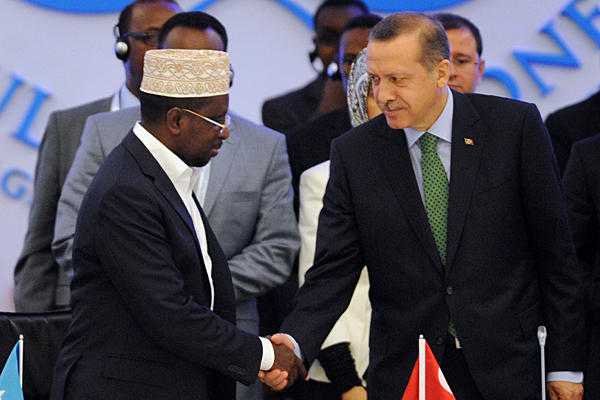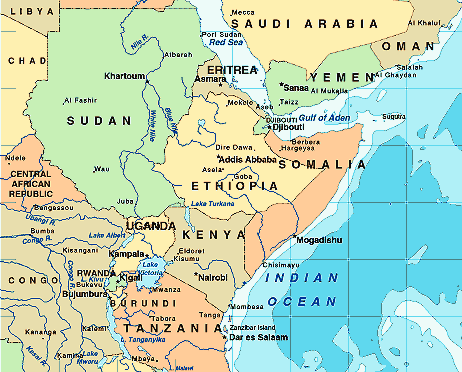On July 8, 2012, six senior journalists based in Abuja, Nigeria left the country for the Turkish capital, Istanbul. The desire to visit the country stemmed from various reasons: it is one of the few countries that belong to two continents and one of the countries that is an Islamic nation yet operates as if its a secular state.

Turkish History
Much of this has been recorded by historians who write that “Fate has put Turkey at the junction of two continents. As a land bridge, a meeting point and a battleground, it has seen peoples moving in both directions between Europe and Asia throughout recorded history. That human traffic has left monuments and debris, dynasties and lasting cultural legacies, all of which have contributed to the character of modern Turkey. Turkish history is such a hugely rich patchwork of overlapping eras and empires that it boasts figures, events and phenomena familiar even to the layperson”.
Lessons Learnt
We were soon to learn that Turkey is a unique historical and cultural nation via the efforts of the non-governmental organisation called Ufuk Foundation, an Islamic body that is being propelled by an American-based Islamic scholar Fethullah Gullen who more than any living or dead Turkey citizen has contributed largely to the interfaith development in the country. Gullen easily is the most powerful religious leader in Turkey today, even though he lives in the Pennsylvania area of the United States.
It was the unique interfaith development aspect that attracted the interest of Nigerian journalists who embarked on the trip believing that one or two lessons would be learnt for the Nigerian nation.
Since the 30-month civil war of the 60s, nothing has threatened Nigeria’s co-existence like the activities of Boko Haram, and with the seemingly helpless federal government, anything anywhere that could proffer a viable solution would be attractive especially to journalists. This kindled some anxiety in the journalists as they embarked on the trip via Turkish Airline, the seventh largest airline in the World.
Airline Detour
The airline happened to be one of the places of destination for us and we were curious and ready to learn given the not-too- interesting story of aviation sector in Nigeria. Its story of small beginnings started in 1933 as a small local carrier with five aircraft, serving only three routes. Today it has over 200 aircraft with over 700 pilots and more than 190 destinations. A former university teacher, 53-year old Dr. Temel Kotil who is the CEO and President has been on the seat for over ten years. The story of the airline is on his finger tips and he told it with ease. He said the target of the airline in Nigeria is to have four destinations- Lagos, Abuja, Kano and Enugu and they have since submitted an application to fly into Abuja and Kano, which is awaiting approval from the Minister of Aviation Mrs. Stella Oduah. He said within 24 hours of approval, the airline would commence flights to Abuja.
When asked the reasons for their interest in Nigeria, the CEO said the country is a big market waiting to be tapped by international businessmen. Currently, Turkish airline has a daily Lagos-Istanbul flight, which he said is not enough.
Turkish Secularism
Turkey has had a fair share of Islamic extremism and the country was able to overcome it. Today the country can proudly say its one of the most liberal Islamic nations in the world. Its practice of secularism has been to the envy of most Arab nations because it has managed to attract the full benefits of the Western world without losing the character and value of Islamic tenets. How did they do this? Who and what helped them to achieve this? These were the questions Nigerian journalists went in search of answers to with a view to recommending such to douse domestic tensions and reduce their occurrences. To achieve this, the country successfully relegated religion to the background and ensured it had nothing to do with governance. Hardly is anyone allowed to bring religion into government issues.
Weekly Rituals
Fridays and Sundays are working days. Only Saturday is left for rest. No prayer is offered at least publicly at any non-religious function. The country is made up of over 80 percent Muslims but hardly is that seen or noticed as religion is restricted to the heart and not allowed to play any role in schools and public issues. Nobody sees his or her position as having a religious influence outside the fact that they recognise in their heart the omnipotence of God. Their fanaticism is about their culture and country not about their religion. They cherish their history and values. That explains why on arrival at Istanbul the first place we were taken to was the National Museum where the country’s history is shown to visitors for them to appreciate the greatness of Turkey.
Gullen Influence
It is perhaps the efforts to sustain this secular character laid by these great leaders and reformists that may have thrown up Gullen who had since the 1970s established a movement whose membership had exploded. His followers have slowly built up a network of educational institutions, non-governmental organisations and businesses that started in Turkey, but spread to Central Asia, and is now entrenched in every continent of the world including Africa, Nigeria. If you don’t know much about Nile University or Turkish International Hospital all in Abuja because they are new, you certainly must be familiar with the Abuja-based Turkish International College, they all belong to the Gullen Movement. In Turkey, the presence of the movement can be felt in virtually everything. Its political goal is still secretive but it has become an institution you cannot ignore, not even the government. Its message of non-violence and inter-faith tolerance is spreading like wild fire. Their network is intimidating even as their apolitical disposition remains curious. Outside of Turkey, the network of Gullen schools has been rapidly expanding all over the world, and around 1999 the Gullenists began to establish publicly-funded charter schools in the United States, where they already had a small number of private schools. Among the movements institutions visited by the journalists were the Samanyolu Television, one of the strongest private TV stations in Turkey. The station broadcasts many programmes that helps to promote values such as honesty, charity and tolerance. At least 20 of its programmes are broadcast in foreign countries. We also visited the Zaman Newspaper, which is the largest selling Newspaper in Turkey that sells over a million copies daily. There were also the Fetih College and University operating as institutions of distinction.
Obviously to encourage dialogue and interfaith tolerance, the movement established Journalists and Writers’ Foundation since 1994. Under this platform, intellectuals are assembled from time to time to exchange ideas on tolerance among the people of the world with special interest in Turkey.
Eye-opening Trip
The one week trip certainly was enriching as it came clear to us that Turkey was able to tackle its Islamic fanaticism because the whole country was committed to achieving that.
Where are the political, business and intellectuals of the North of Nigeria? What idea are they bringing to the table to save the region from being destroyed by religious insurgents? Where are wealthy Nigerians who like Gullen can invest on the inter-faith development? Everybody is complaining about the government’s lack of responsiveness but from the Turkish example, private persons can be very useful. Why can’t a movement be formed to help these apparently helpless Nigerians develop themselves rather than indulge in violence in frustration against the society. A lot more needs to be done by leaders of the North if solution to this fanaticism is to be tackled. The indifference of political leaders whose action can make a difference should be re-examined.



